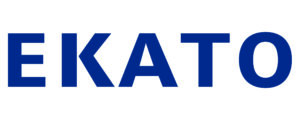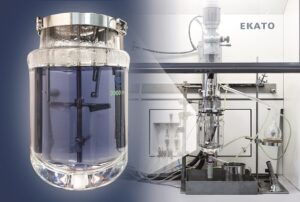Sponsored by 
Crystallization as a basic process engineering operation is of paramount importance in the process industry. It is used for the production and purification of solids in numerous chemical, pharmaceutical and food industry processes. The use of mixing technology adapted to the process is the key to achieving the desired product properties.
Crystallization of a solution can be initiated by changing temperature or solute concentration. This can generally be triggered by cooling or evaporating the solvent, but also by adding an antisolvent or adding a new component as in precipitation or reaction crystallization. The process variants as well as the apparatus-based process solutions are strongly dependent on the properties of the material system and are correspondingly diverse.
For successful crystallization, the most suitable process and thus the method for exceeding the solubility, i.e. generating a supersaturation must be determined. A helpful tool for process selection is the solubility curve, which shows the concentration of the dissolved solid over the temperature. Depending on the influence of temperature on the solute concentration, cooling or evaporation is chosen for crystallization, or a combination of both by applying a vacuum.
Crystallization can be initiated by shear, by foreign substances such as impurities, but also by the vessel wall or internals, or by the introduction of seed crystals. If the degree of supersaturation is too high, nucleation clearly dominates crystal growth, and the process becomes uncontrollable. This effect can lead to a broad particle size distribution with an excessive fines content at the same time.
Depending on the material system, further significant parameters such as nucleation and crystal growth kinetics, maximum local energy input or the option of seeding the crystallization need to be elucidated, which are usually determined by experiments on a geometrically similar test scale.
Thus, an important aspect of process control is supersaturation control. By setting the operating point in the metastable region close to the solubility curve, crystal growth is promoted over primary nucleation.
The determination of solubility and metastable range is an elementary investigation in the process development of a crystallization process. These values can be determined in the laboratory by repeated heating and cooling at different substance concentrations.
The pictures show a test stand on a 3-liter scale. Compared to smaller set-ups, this equipment allows not only variation of pressure and temperature and their rates, but also variation of container geometry, stirrer geometry and speed and thus an extended investigation of the target variables product purity, yield or crystal size distribution.
In addition, already on this small scale various inline probes like FBRM or Infrared Spectrometry can be used as powerful tools to clarify the significant process parameters which in later project phases will become decisive for a successful scale-up of the process solution.

3-liter-scale test stand in R&D Center
Mixing requirements
Solids are formed during crystallization, which must be considered when designing agitators. The basic mixing task of suspending is therefore of great importance as a critical success factor for every crystallization process. Furthermore, a good homogeneity in the entire filling volume is required to ensure, for example, uniform growth conditions for the crystals in the entire liquid volume. Depending on the type of crystallization mechanism, heat transfer and renewal of the liquid surface are also relevant.
In addition to these tasks, which are easy to describe in terms of mixing technology, there are other effects such as crust formation or deposits. These can usually be influenced by the agitator design in combination with the mode of crystallization as well.
EKATO solutions for crystallization processes
EKATO can support customers already during the development phase. This starts with basic laboratory investigations on basic parameters, selecting the mode of crystallization and finding the right strategy for a robust process. Taking this as a basis, EKATO is in the position to deliver a complete solution starting from a first estimation until detail engineering, manufacturing and operation. EKATO has excellent experience in designing not only the agitators, but also can assist with expertise in vessel design and process know-how. Furthermore, we can support with CFD simulations and trials in our laboratory or on site.
For more insights in EKATO R&D capabilities:
More Information under: